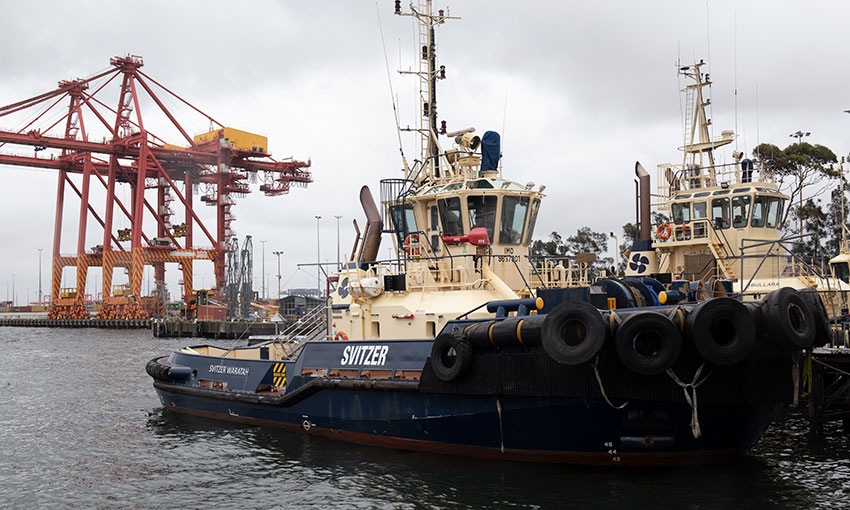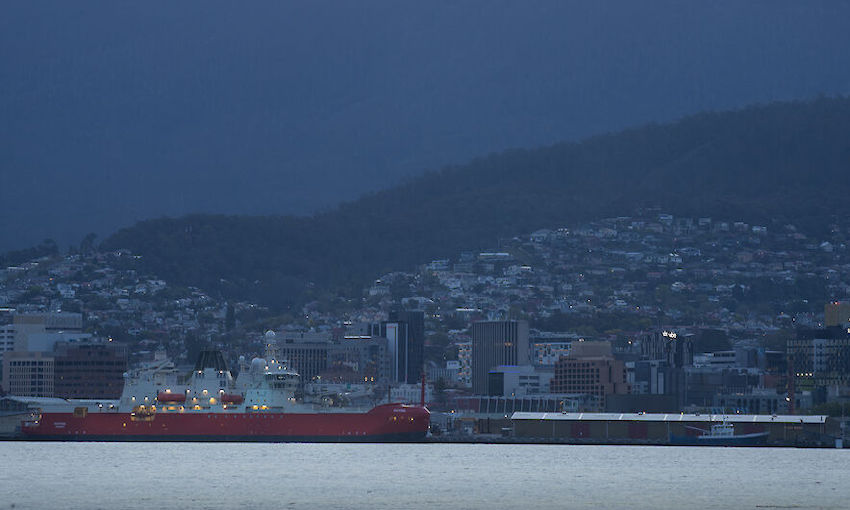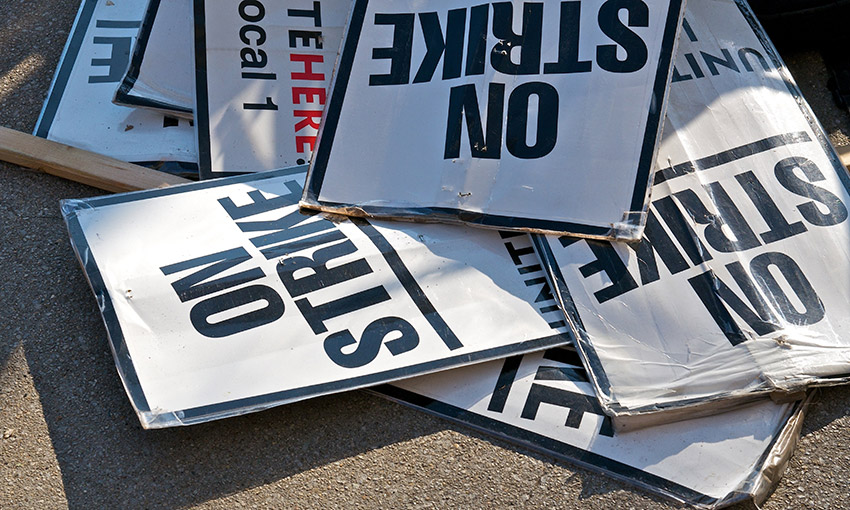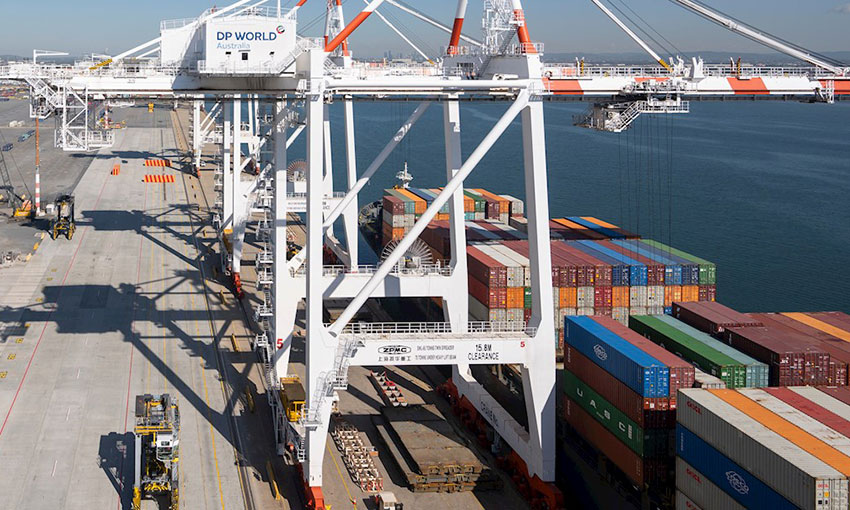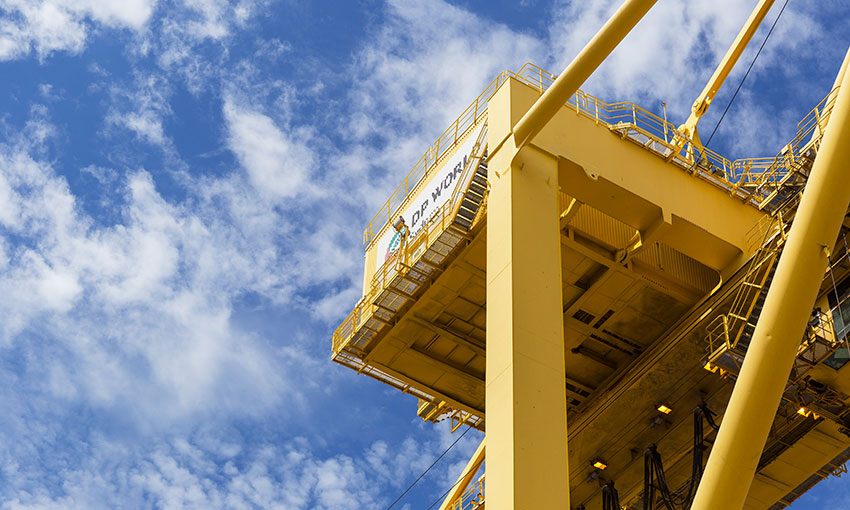SVITZER Australia will lock out its 582 harbour towage employees indefinitely from 1200 AEDT this Friday (18 November).
The company said no vessels will be towed into or out of 17 Australian ports that Svitzer services when the lockout becomes effective.
“This will impact shipping operations at major metropolitan and regional Australian ports nationwide in Queensland, New South Wales, Victoria, South Australia and Western Australia,” Svitzer said in a statement.
The towage company today gave notice of the lockout to all its harbour towage employees covered under its 2016 National Towage Enterprise Agreement, as well as their union bargaining representatives, the Australian Institute of Marine and Power Engineers, the Australian Maritime Officers Union and the Maritime Union of Australia.
Industrial action
In a statement the company said it was locking out its employees under the provisions of the Fair Work Act in response to “damaging and ongoing industrial action being organised by the unions”.
Over recent weeks, the three maritime unions have ratcheted up industrial action, announcing new actions nearly daily. These actions have included work stoppages and extensive work bans. They also include “bans on the performance of work on shipping line vessels across Australia” – DCN understands the shipping line to be Maersk.
Maersk has notified customers of schedule changes for five vessels this week due to the industrial action at Svitzer.
Svitzer said the industrial action has been harming its ability to “reliable, safely and efficiently serve our shipping customers and port operations around the country and is causing serious disruption to the national supply chain, which is reliant on shipping”.
The company said the indefinite lockout was one of the few avenues available to employers faced with such action.
According to Svitzer, the maritime unions have given notification of nearly 2000 hours of work stoppages since October 2020.
Negotiations for a new enterprise bargaining agreement – replacing the current one, which expired in 2019 – have been ongoing for three years.
The company said it is seeking to remove “restrictive work practices” from the enterprise agreement. It said these practices are “critical to the future sustainability and competitiveness of its Australian business”.
Svitzer managing director Nicolaj Noes said the company’s goal all along has been to reach a new enterprise agreement.
“We have exhaustively negotiated in good faith to try to do this,” he said.
“We had hoped it would never come to a lockout – but we are at a point where we see no other option but to respond to the damaging industrial action underway by the unions.”
Mr Noes said Svitzer has an obligation to serve its customers safely, reliably and efficiently and to ensure imports and exports, and our nation’s trade and supply chains run without disruption.
The inability to reach a new enterprise agreement and the high number of protected industrial actions prevent us from doing so,” he said.
“We particularly feel for our many hard-working crews and employees who are caught in the middle of this dispute.”
Mr Noes said the company had lost more than 130 jobs and work at three ports in the period between December 2020 and September 2021.
“We remain a committed employer that provides well-paying, highly regarded, Australian maritime jobs. We are only seeking to make common-sense changes that are necessary for Svitzer to operate and compete effectively and, in turn, protect jobs,” Mr Noes said.
“We sincerely regret the difficulties and disruption this lockout presents to our customers and other stakeholders within the supply chain, including ultimately, every Australian consumer.”
New South Wales minister for transport David Elliott said he would be meeting Mr Noes on Tuesday morning.
“Once again we have the union movement living up to its threat to make 2022 the year of the strike, and the people of this state are sick of it. The NSW government is committed to providing whatever support necessary to those affected by this union thuggery,” Mr Elliott said.
“Our supply chains and international trade are the economic lifeblood of this state and this action by the combined maritime unions will threaten to prolong our economic recovery by months, if not years.”
The MUA response
MUA national secretary Paddy Crumlin said, “Svitzer’s workers have continued to turn up, work hard and contribute not only to the massive profitability of this successful company but save lives and protect Australia’s coastline during daring rescues of stricken cargo ships”.
Svitzer tugs played pivotal roles in assisting stricken vessels over the past several months, including the Rio Madeira in October and the Portland Bay in July.
MUA assistant national secretary Jamie Newlyn said by locking out its maritime workers, Svitzer would “wreck Australia’s productivity [and] prevent consumer goods and bulk commodities being loaded or discharged at major ports like Botany, Kembla, Melbourne, Newcastle and Brisbane”.
“Every Australian business and consumer will now suffer from this delinquent company’s selfish and pigheaded conduct,” Mr Newlyn said.
“Svitzer will bring their reputation down to the level of Qantas in the eyes of the Australian community if they lock out their workforce while trying to ram through a massive pay cut.”
On 29 October 2011, Qantas grounded all domestic and international flights and announced an employee lockout to begin on 31 October. A full-bench decision from Fair Work Australia terminated all industrial action by Qantas and the involved unions before the lockout took effect.
Mr Crumlin said, “The actions of Svitzer today replicate Qantas’ actions but in fact go far further in the damage to ports and port users, and the flow on effects that will have on Australian businesses, consumers and our global reputation is extraordinary”.
Engineers’ union responds
AIMPE federal secretary Martin Byrne said the escalation of the long-running dispute would leave much of the Australian coastline without emergency towage response capability.
“Just a few short months ago the nation lauded the tug crews as heroes for their actions in saving the Portland Bay and its crew from being smashed against the rocks. Now there will be no Svitzer crews available to respond to similar circumstances,” Mr Byrne said.
He went on to say AIMPE’s protected industrial action has been limited in duration with most actions being between four and 12 hours long.
Mr Byrne said during these periods, AIMPE provided exemptions, including during an emergency circumstance advised by a harbour master or representative of a port authority or another circumstance where the safety of the port, vessel, crew or marine environment may be in jeopardy.
AIMPE has also exempted Australian Defence Force vessels from the impacts of it protected action. In September 2021, Svitzer won a long-term contract to provide towage services to the Royal Australian Navy.
Mr Byrne said AIMPE has not carried out simultaneous actions in all ports around the country. He pointed out that Svitzer’s lockout covers all the ports under its enterprise agreement and is indefinite in its duration.
“The Svitzer lockout action is qualitatively and quantitively different from the employee’s protected action,” Mr Byrne said.
Application to cancel the EBA
In January this year, Svitzer Australia applied to the Fair Work Commission to terminate the enterprise bargaining agreement. A hearing at the Fair Work Commission was scheduled for 8 August.
However, the commission postponed the hearings until 8 December 2022 and February 2023.
Legislation is before federal parliament that will amend the Fair Work Act to disallow companies to terminate enterprise agreements. It passed the lower house last week and is expected to go before the Senate soon.
The MUA’s Mr Newlyn said, “the clock has been ticking on Svitzer’s ridiculous attempt to cancel the employment agreement, and at five minutes to midnight, with reforms working their way through the parliament, the petulant and childish management team have decided to detonate all goodwill by locking out the workforce and triggering a massive nationwide industrial conflict”.

